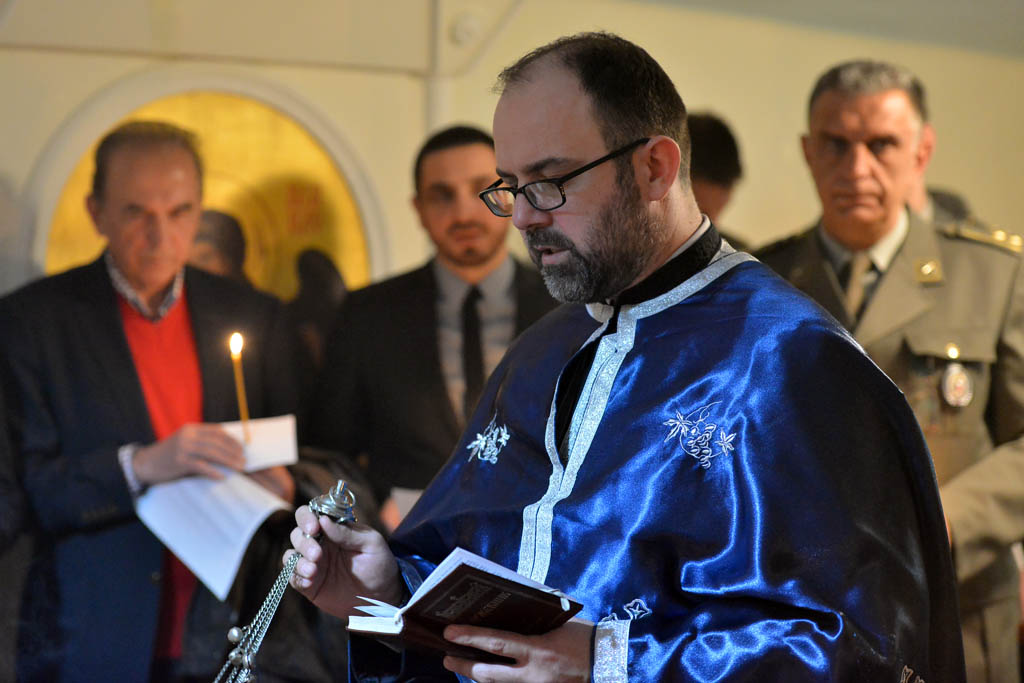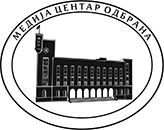24.03.2016
Central Military Club marks the Day of Remembrance of Victims of the NATO bombing
 In the chapel of the Holy King Milutin in the Central Military Club, chief military chaplain of the Serbian Armed Forces Sladjan Vlajic held today a religious service on the occasion of the Day of Remembrance of Victims of the NATO bombing.
In the chapel of the Holy King Milutin in the Central Military Club, chief military chaplain of the Serbian Armed Forces Sladjan Vlajic held today a religious service on the occasion of the Day of Remembrance of Victims of the NATO bombing.The service was attended by members of Odbrana Media Centre and guests from the Zrenjanin Contemporary Gallery.
Before that, Director of Odbrana Media Centre Colonel Stevica Karapandzin reminded that today all institutions of the Ministry of Defence and the Serbian Armed Forces are marking the 17th anniversary of the NATO aggression against the Federal Republic of Yugoslavia.
- Today is the day of remembrance of the pain and pride of all those who have died just because someone wanted to take away a part of our country. Memories of us who stand here today are fresh and will be such as long as we live, because among us there is none who was not a witness of that event - someone as a child that remained traumatized by the sirens, someone who watched his dying comrades, relatives, friends or colleagues, Colonel Karapandzin said pointing out that since 2001, 24th March is marked as the Day of Remembrance of Victims of the NATO bombing in order to remember the horrors of NATO aggression even by the generations to come.
 Throughout Serbia today commemorative events are held in order to pay homage to all the victims of NATO aggression. The state ceremony marking the Day of Remembrance of victims of the NATO aggression led by the Serbian Prime Minister Aleksandar Vucic was held at the monument to fallen citizens on the Varvarin bridge.
Throughout Serbia today commemorative events are held in order to pay homage to all the victims of NATO aggression. The state ceremony marking the Day of Remembrance of victims of the NATO aggression led by the Serbian Prime Minister Aleksandar Vucic was held at the monument to fallen citizens on the Varvarin bridge.NATO attacks started on 24 March 1999, lasted 11 weeks and between 1,200 and 2,500 people were killed in them, according to estimates from different sources. The bombings that have lasted for 78 days without interruption severely damaged the infrastructure, commercial buildings, schools, health institutions, media houses and cultural monuments.
The attacks began shortly before 8 pm on the orders of the then NATO Secretary General Javier Solana, and the Yugoslav government that night declared the state of war.
The NATO campaign, which the Government of the Federal Republic of Yugoslavia and numerous legal experts called aggression, followed the failure of negotiations on the settlement of the Kosovo crisis in Rambouillet and Paris, in February and March 1999.

